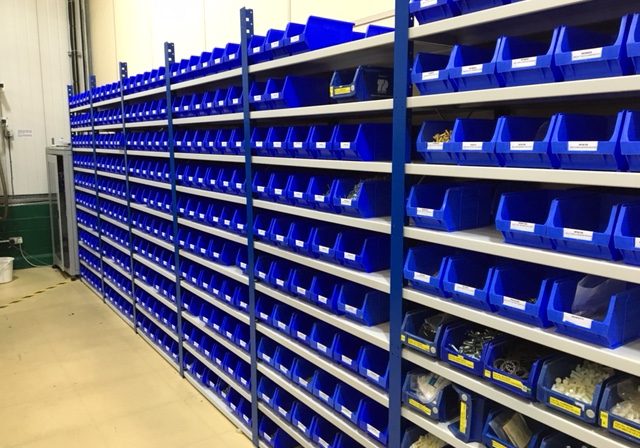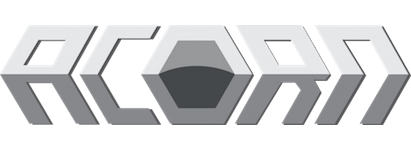Kanban is a pull system based on client demand, ordering and using parts to build ‘just in time’ for an exact delivery date. By holding what is needed only for final deliverables on order, inventory becomes leaner with waste reduction and effective resource utilisation.
Kanban for lean manufacturing
Kanban systems are particularly useful in complex manufacturing processes where large numbers of components need to be processed and tracked. Unlike in an ERP/MRP model, Kanban is responsive to actual customer orders rather than forecasting. The ultimate aim is to achieve higher throughput with lower delivery lead times.
Typically material flow is managed through a two-bin system that attaches and tracks data including customer, item, description, storage location, bin type, batch and quantity. Acorn install and optimally configure Kanban shelving and bin systems that can be intelligently resupplied through barcodes, QR codes or RFID tags that are integrated into the solution.
— Lower overhead costs
— Standardise production goals
— Reduce inventory by up to 75% in certain industries
— Prevent overproduction
— More control for work area personnel
— Improved manager progress reporting
— Avoid overstocking of inventory
— Designed for optimal management of components and inventory
— More efficient use of warehouse space and surfaces
— Streamlined workflow optimised to your production process
— Continuous traceability of stock and bin statuses
— Barcode, QR code or RFID tagging for precise control in the flow of goods
— Downstream: customer processes withdraw items in precise amounts
— Upstream: supplier produces items in precise sequence and defined amounts
— No items made or moved without Kanban
— A Kanban should be attached to each item
— Incorrect amounts and defects are never sent to downstream processes
— Kanban numbers are reduced systematically to lower inventories and to identify problems
On-site Kanban shelving install


